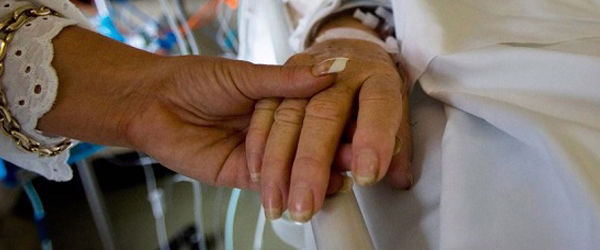New proposed regulations governing the contraceptive mandate under the Affordable Care Act continue to violate basic principles of religious freedom, said the U.S. Conference of Catholic Bishops.In comments filed March 20 with the Department of Health and Human Services, the USCCB raised a series of concerns, among them being that the new proposals keep in place "an unjust and unlawful mandate" regarding the provision of contraceptive and other pregnancy services and that the rules provide no exemption, or accommodation, for "most stakeholders in the health insurance process, such as individual employees and for-profit employers," who are morally opposed to such coverage.Other objections raised in the comments include:— An "unreasonable and unlawfully narrow" exemption for some nonprofit religious organizations, primarily houses of worship.— Limited accommodation for religious employers that continues to require those employers falling outside of the government's definition to "fund or facilitate objectionable coverage."The comments state that the concerns being raised are the same as those addressed when the rules governing the Affordable Care Act were first proposed in 2011.The 24-page statement was filed during the 60-day comment period established by the Health and Human Services after it introduced the new proposed rules Feb. 1. The deadline for comments is April 1.The comments were filed on behalf of the USCCB by Anthony R. Picarello, associate general secretary and general counsel, and Michael F. Moses, associate general counsel.The rules are expected to be finalized this summer. Institutions are required to provide coverage by August.The USCCB position is built around a series of legal arguments stemming largely from decisions in earlier court cases.The document said that the contraceptive mandate remains unchanged and presented the USCCB position again that it should be rescinded."Contraceptives and sterilization procedures, unlike other mandated 'preventive services,' do not 'prevent' disease," the document said. "Instead they disrupt the healthy functioning of the human reproductive system."The USCCB argued that the contraceptive mandate requires the coverage of abortifacients drugs and devices in violation of various aspects of the Affordable Care Act dealing with abortion coverage and the non-pre-emption of state law as well as well as other laws. Such concerns are separate from religious freedom issues, the comments said.The document also contended the new proposed rules offer no exemption, or accommodation, for "the overwhelming majority" of individuals and institutions who object to contraceptive coverage on religious or moral grounds."Those without exemption or accommodation include conscientiously-opposed individuals, for-profit employers (whether secular or religious), nonprofit employers that are not explicitly religious organizations (even in cases where their objection is religious in nature), insurers and third-party administrators. Respect for their consciences demands some adequate legal protection, but under the current proposed regulation they have none," the USCCB told the government.The document acknowledged that the religious employer exemption in the new proposed rules was "improved slightly" in one area, but was "worsened" in another.The first version of proposed rules exempted only religious organizations whose main purpose is the inculcation of faith and who employ and serve members of the faith. A later accommodation said the contraceptive mandate could be met by nonexempt organizations through third-party insurers.Under the new proposed rules for exempt religious organizations HHS eliminated standards governing inculcation of the faith and who the organization serves, which the USCCB welcomed.The USCCB raised concerns, however, that the new proposed rules exclude from the definition of religious employer various organizations that "undeniably are 'religious' and undeniably 'employ' people, such as Catholic hospitals, charities and schools."The government's proposed definition of religious employer still reduces religious freedom to freedom of worship by limiting the exemption almost exclusively to houses of worship," the USCCB argued.The document also questioned the accommodation to nonprofit religious organizations in the rules that fall outside the definition of religious employer, saying the accommodation is based on a number of "questionable factual assumptions.""Even if all of those assumptions were sound, the accommodation still requires the objecting religious organization to fund or otherwise facilitate the morally objectionable coverage. Such organizations and their employees remain deprived of their right to live and work under a health plan consonant with their explicit religious beliefs and commitments," the document said.The USCCB also maintained that the contraceptive mandate "continues to represent an unprecedented (and now sustained) violation of religious liberty by the federal government.""As applied to individuals and organizations with a religious objection to contraceptive coverage, the mandate violates the First Amendment, the Religious Freedom Restoration Act and the Administrative Procedure Act."The USCCB offered to work with the government to "reach a just and lawful resolution to these issues."—CNSThe full document outlining USCCB comments on the federal government's new proposed rules governing contraceptive coverage under the Affordable Care Act can be read online at www.usccb.org/about/general-counsel/rulemaking/upload/2013-NPRM-Comments-3-20-final.pdf.

